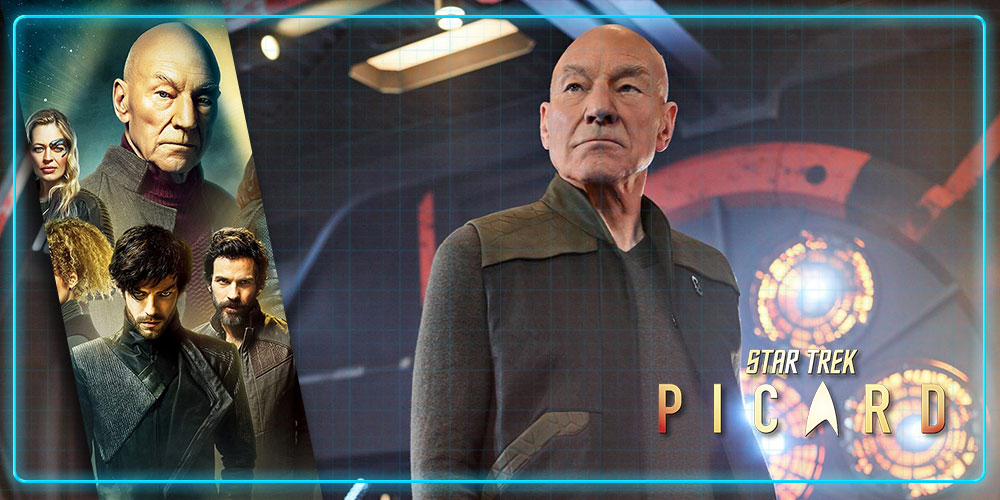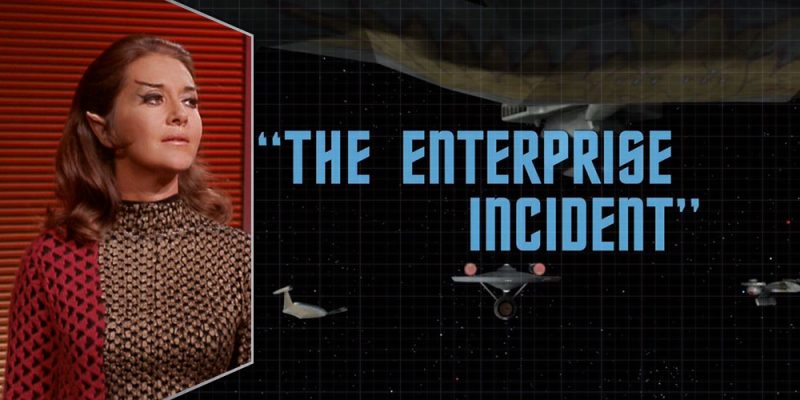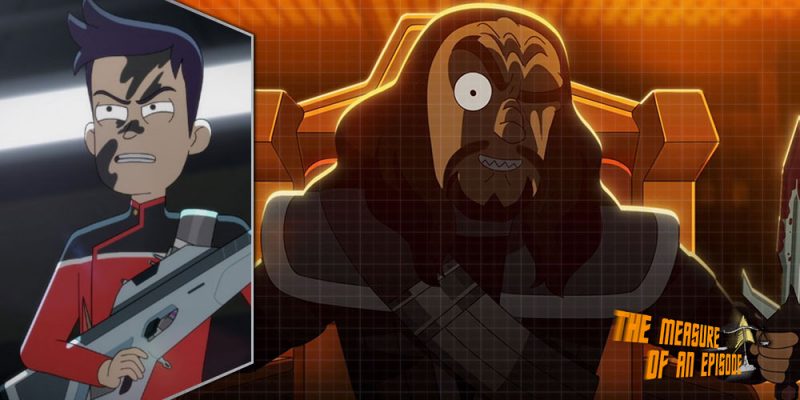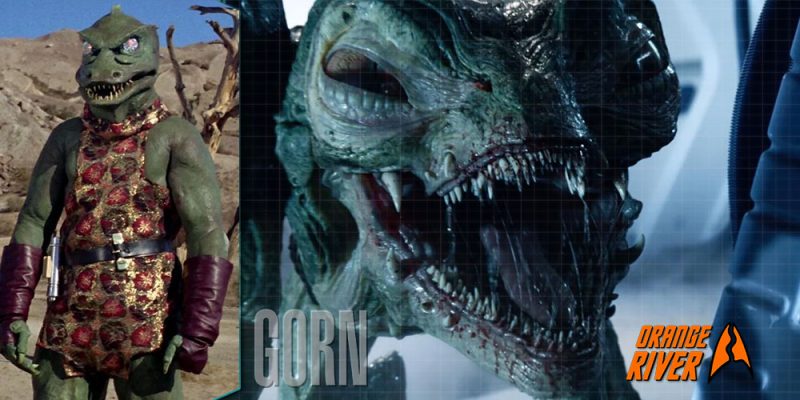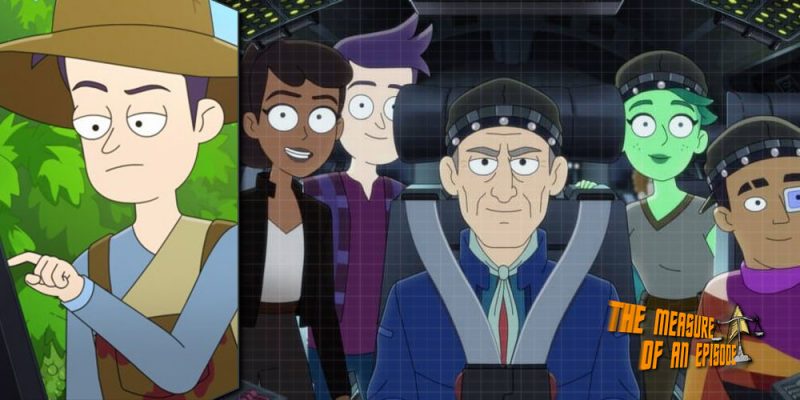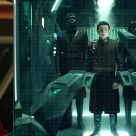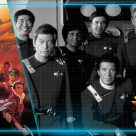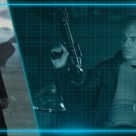Since Star Trek: Nemesis’ mixed bag of a final adventure, Star Trek fans were more than eager to see the return of some legacy character in a new adventure set after the year. And they were especially eager to see where Captain Jean-Luc Picard, who became a sci-fi icon and a Star Trek captain whose legendary status was rivalled only by Kirk’s.
Then official confirmation came in 2018, with a surprise guest appearance of Sir Patrick Stewart at the Las Vegas Star Trek Convention: the beloved captain would return in an all-new show, still played by living legend Patrick Stewart.
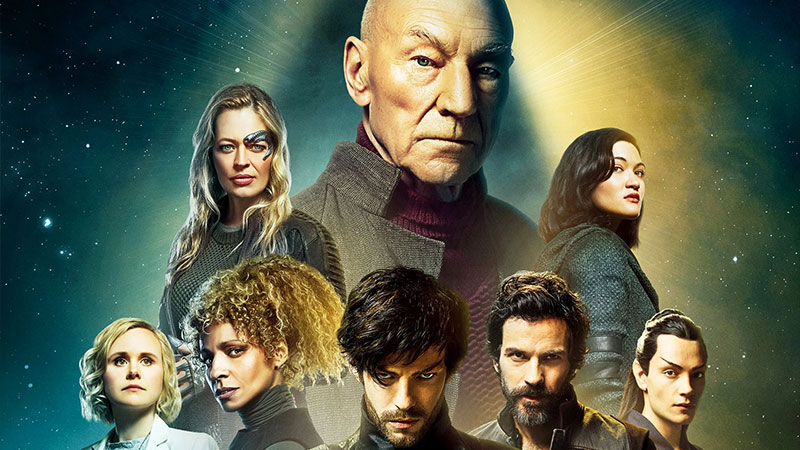
This was groundbreaking for more than one reason: it was the first Star Trek show whose main protagonist was an already existing character -making the series a sequel through and through-, and the first story to televise the events following Nemesis in the classic timeline. The comic book miniseries Star Trek: Countdown, released prior to the 2009 J.J. Abrams reboot, and countless novels were already set after Nemesis, but it took until Picard to show what happened onscreen.
Since the first promotion, the show displayed a more intimist approach: Alex Kurtzman promised this show would be more of a character study, a psychological tale rather than a sci-fi adventure into strange new worlds.
Another thing the first trailers promised was a welcome return of TNG lore and characters: in the second trailer, you can see a borg Cube (what we would come to know as “The Artifact”), Romulans, the return of fan-favourites (Riker! Troi! Seven of Nine from Voyager!), and obviously new faces too. Something that was clear: this would not be your typical Star Trek show, and its main character wouldn’t be your typical Star Trek captain.
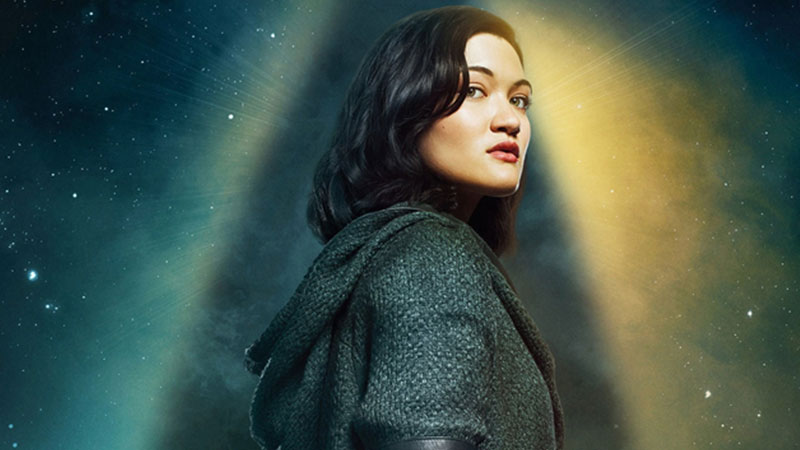
A Different Kind Of Captain (And Trek)
Something that surprised -and alienated- a lot of fans when the pilot, Remembrance, aired in January of 2020: Jean-Luc Picard is not the same person he was 25 years before. After Romulus was destroyed by a supernova and after rogue synthetics attacked the Utopia Planitia shipyard, the United Federation of Planets stopped the rescue plan for Romulans, refusing their help. The realization that the United Federation of Planets wasn’t more than the perfect and idealistic organization that had always prided itself on being, was what led Picard to withdrew in protest.
The pilot, Remembrance, does a great job in establishing what place the Star Trek universe is currently in Picard has been retired for some years, and while its life may appear RI, there’s something missing: “The dreams are lovely”, he confesses his assistant Laris, “Is the waking up that I’m beginning to resent”.
During the “golden age”, Picard was one of the best captains, one of the most respected Starfleet officers, and had all of Starfleet behind his back and the sky as the only limit. Here is alone, an outcast, rejected by the same Starfleet he spent most of his life for, but that’s why his kindness, empathy and resilience stand out: because they come from a tougher place in life.
He may not be the strongest captain anymore, but his real strength comes from dignity and idealism, and the predisposition to do the right thing despite the circumstances. It’s somewhat reminiscent of what Rian Johnson did for another sci-fi franchise (one with lightsabers and space wizard): took a beloved icon and showed everyone that there’s more than the legendary and perfect hero everyone expected to see again.
While still strong and resolute, Picard isn’t the same character fans have always seen. Some people saw this as a downgrade from the “real thing”, a betrayal of what the character was supposed to be, but it’s only logical Picard has grown and evolved.
The pilot didn’t just establish Picard’s new place in life though. It also establishes the peculiar situation of the United Federation of Planets after Romulus was destroyed by its sun turned into a supernova and the other, new main character of the season: Dahj and thereafter her twin sister Soji, who started as a wide-eyed scientist and then discovers herself to be at the centre of a vast galactic conspiracy which involves a secret Romulan organization, an ancient admonition and a potentially galaxy threatening menace.
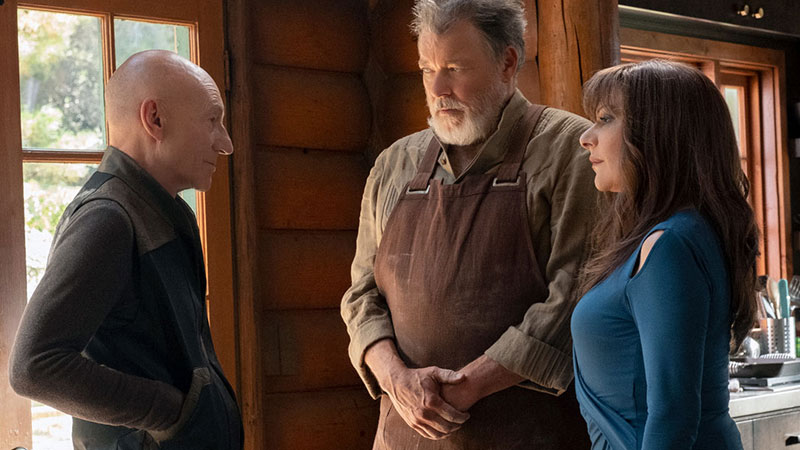
Romulan, Androids & New Faces
The first season of Picard featured a heavy presence of Romulan lore and mythology: it only makes sense that, given the destruction of their homeworld and the near-collapse of their society, something of their highly secretive society would be revealed to the galaxy. It’s a welcome addition for what has been a little more than the secretive villains in contrast with the usually more pugnacious Klingons, and for the first time, we can actually see more of their spirituality.
Another welcome return in the are the Borg: far from the almost invincible foes they were in The Next Generation, now they’re seen freed from the Collective grasp and broken individuals who need help to regain control of their individuality. The Romulan and borgs weren’t chosen (just) for the sake of fanservice: after all, they were the main antagonists in The Next Generation, and the borg have a deep connection with Picard’s history and motivations (having assimilated him).
There’s also time to meet old friends, like William Riker and Deanna Troi. Picard reunites with his old comrades in what is arguably the best episode in the show, Nepenthe. It’s an episode where nostalgic factor, fanservice and drama are all well balanced and strike a melancholic (and beautiful) chord in a series already packed to the brim with these moments. But this show isn’t made entirely from familiar faces.
We’ve already talked about Soji: she’s immediately relatable, played by the charismatic Isa Briones -who also plays the android Sutra to perfection and contributes to the soundtrack with a Blue Skies cover-. Soji is the most interesting addition in an ensemble which includes also Dr Jurati (Alison Pill), scientist ad Daystrom Institutes; Rios (Santiago Cabrera), the captain of the ship Picard travels with, La Sirena; Raffi (Michelle Hurd), former intelligence officer; and Elnor (Evan Evagora), a Romulan young man. Both Rios and Raffi are retired from Starfleet, and they lead a life of regrets until they embarked on this journey and start the path for healing from their past.
All these new characters are loners, outcasts each one for their own reasons: they provide the outsider perspective on Starfleet and Federation politics and provide a lot of interesting conflict on the ensemble. They’re not the Enterprise crew: they constantly bicker, they question Picard’s orders and motifs but prove themselves to be more than capable of working together. The villain too is a kind of an outcast: Narek (Harry Treadaway), a Romulan agent on the Artifact who befriend Soji in order to discover more about her past.
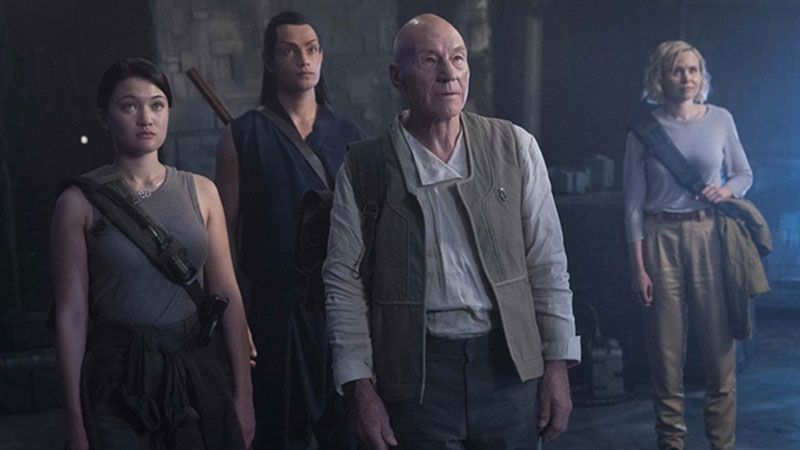
A Messy, (Im)Perfect Star Trek
Star Trek: Picard had quite a difficult task, compared to other Trek shows. Star Trek: Discovery had to restart the tv franchise after a decade-long break, introducing its new characters and stories to a new audience. Picard, on the other hand, had to reprise a legendary character we haven’t seen for a very long time, appealing to both old and new fans and resuming a universe from where we’ve left him last time.
It’s easy to see the flaws in this first season of Picard. By the final episode, not every subplot reaches a satisfying conclusion: a lot of narrative threads are either left dangling, or summarily resolved; some characters are discarded just when their purpose in the bigger picture is accomplished, never to be heard again (Narek, anyone?), others don’t have much to do in terms of dramatic bits to work with (Elnor, anyone?).
It was apparent there was some confusion behind the camera, a lot of uncertainty. This left the feeling of more than one missed opportunity here and there, and that the first season could have been more cohesive and complete.
But what the series lacks in narrative cohesion, it gets right in its themes and core concepts. Along with the themes Star Trek usually conveys (those of cooperation, diversity and finding your own voice), Picard adds those of identity, memory and the ineluctability of death. A more existential Trek -not casually, Rios is an avid reader of existentialist texts-, one more in touch with its main character’s fragility; and it also helps that Patrick Stewart is as excellent as ever, giving one of the best performances on his role.
The feeling Season One of Star Trek: Picard leaves with is one of the great themes in a mixed narrative: the series does a pretty great job at introducing its characters, themes and its overarching narrative is compelling and clever ways, but it doesn’t give them all a proper conclusion and some plot points feel rushed and unresolved.
But the writers manage to pull off its themes right overall, and its themes are beautiful and as timely as ever. It isn’t the best Star Trek ever made, and not the best first season of a Trek show, but it’s arguably the most ambitious Trek we’ve ever seen.
Picard season 2 premieres this Thursday on Paramount+ in the United States, and on CTV Sci-Fi Channel and Crave in Canada. Outside of North America, the series is available on Amazon Prime Video

